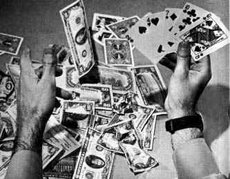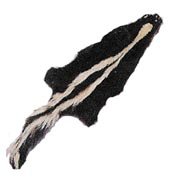Transitions
The toughest changes in life seem to come from nowhere, to happen abruptly, kicking us into some strange future. Luckily, most changes aren't tough in this way because one thing leads to another, which leads to another, etc. and we can look back and figure out the why and the how of it, and the universe seems to have a sense of order.  But I want to talk for a minute about transitions in prose, because the art of the transition is the art of the short story (one of my creative writing teachers told me this -- I can't remember who). Transitions are tricky to write, and I love them above all other devices. They transport the reader from paragraph-to-paragraph, scene-to-scene, season-to-season, and year-to-year. The transition imitates a change in time, place, or circumstance, just as fiction imitates experience. Good ones do their thing as if by magic because the reader doesn't know how they ended up somewhere new, nor do they notice that they got there.
But I want to talk for a minute about transitions in prose, because the art of the transition is the art of the short story (one of my creative writing teachers told me this -- I can't remember who). Transitions are tricky to write, and I love them above all other devices. They transport the reader from paragraph-to-paragraph, scene-to-scene, season-to-season, and year-to-year. The transition imitates a change in time, place, or circumstance, just as fiction imitates experience. Good ones do their thing as if by magic because the reader doesn't know how they ended up somewhere new, nor do they notice that they got there.
Here's an example of a rough transition:
Meanwhile, back at the ranch. . .This kind of transition draws attention to itself because it's abrupt and familiar. We recognize it and we become conscious of this recognition and there goes what we'd been nurturing all along: that we were immersed in some version of life other than our own present. As a result, a bad transition is slightly "traumatic" for the reader.
 Which, here: I've been reading Deborah Eisenberg's new collection called Twilight of the Superheroes, and she's killing me with her beautiful transitions. In the following excerpt, she moves us from a character's thoughts about a man who pursued her and who she withdrew from, to her thoughts about having move out of the room she's renting because the couple who rents to her will need the room for their baby:
Which, here: I've been reading Deborah Eisenberg's new collection called Twilight of the Superheroes, and she's killing me with her beautiful transitions. In the following excerpt, she moves us from a character's thoughts about a man who pursued her and who she withdrew from, to her thoughts about having move out of the room she's renting because the couple who rents to her will need the room for their baby:The brilliant autumn days graded into a dazzling, glassy winter with skies like prisms, and then spring drifted down, as soft as pale linen. She painted her room a deep, mysterious blue.Most apparent in this is the pretty language. But to get deeper here, note the words that convey changes and what's ephemeral/ubiquitous, such as the past-tense verb graded, which goes so well with the word "prisms," the refraction of light, the rainbow, the gradual gradation from red to orange to yellow to green, etc.
 We're effectively transported through time via the seasons, but we're also transitioned into a new mood or tone because Eisenberg takes us from images that are superficial and hard (dazzling and glassy) to softer, less definite images, such as drifted, pale linen, and blue.
We're effectively transported through time via the seasons, but we're also transitioned into a new mood or tone because Eisenberg takes us from images that are superficial and hard (dazzling and glassy) to softer, less definite images, such as drifted, pale linen, and blue. My purpose in telling you this (besides pointing out a skill that I admire and want you, my beloved readers, to know about) is I guess to say that if a writer puts a lot of effort into her transitions, whether or not her subject matter is easy, she's doing her utmost to love you, the reader, because no matter what she puts you through in re: imitating life, she's not about to imitate a tough change on top of that. In other words, while on one level you're reading something that imitates life, a transition has just a little less to do with the story being told and more to do with the reader's actual experience as they sit there in their easy chair or whatever, reading the story.
 As for me, then, I'm certianly no Deborah Eisenberg but please know that I'll do my best to demonstrate that I love you and to be attentive to your needs because your comments mean everything.
As for me, then, I'm certianly no Deborah Eisenberg but please know that I'll do my best to demonstrate that I love you and to be attentive to your needs because your comments mean everything.






















